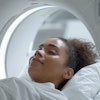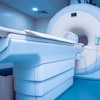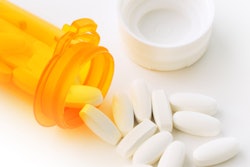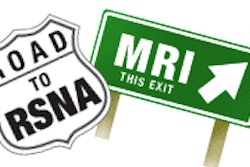CHICAGO - A new study using functional magnetic resonance imaging (fMRI) shows why many of us get a boost from caffeine. The results were presented Wednesday at the 2005 RSNA conference.
Research has pinpointed how caffeine has a quick and positive effect on a person's short-term memory, with the enhancement seen by fMRI in the anterior cingulate cortex of the brain, said Dr. Florian Koppelstaetter, a radiology fellow at the University Hospital Innsbruck in Austria.
"We were able to show that caffeine modulates a higher brain function through its effects on distinct areas of the brain," Koppelstaetter said at a press briefing.
"We all know that caffeine stimulates brain activity," said Dr. Michael Brant-Zawadzki, the chairman of the RSNA communications committee who moderated the press briefing. "What this study has done is geographically map where in the brain caffeine has its impact on short-term memory."
To accomplish that, Koppelstaetter and colleagues recruited 15 men, ages 26-47, and let them drink caffeine-enriched drinks or a placebo drink through a straw while lying in the fMRI unit. The drinks were laced with 100 mg of caffeine, dissolved in 50 mL of water. The men began a working memory task after 20 minutes, the point when caffeine would likely be at its peak potency in the brain, while fMRI detected changes in brain blood flow that could show where brain activity was occurring.
"We were able to demonstrate," Koppelstaetter said, " that caffeine has a definite impact on short-term memory processes. This effect takes part in the distinct part of the working memory network that controls attention and concentration."
Dr. Koppelstaetter said the studies show that caffeine has a positive effect on the speed of performance.
By Edward Susman
AuntMinnie.com contributing writer
December 1, 2005
Related Reading
Good to the last drop: Caffeine enhances BOLD fMRI results, May 14, 2002
Java junkies exhibit different cerebral blood flow, November 28, 2001
Copyright © 2005 AuntMinnie.com




















